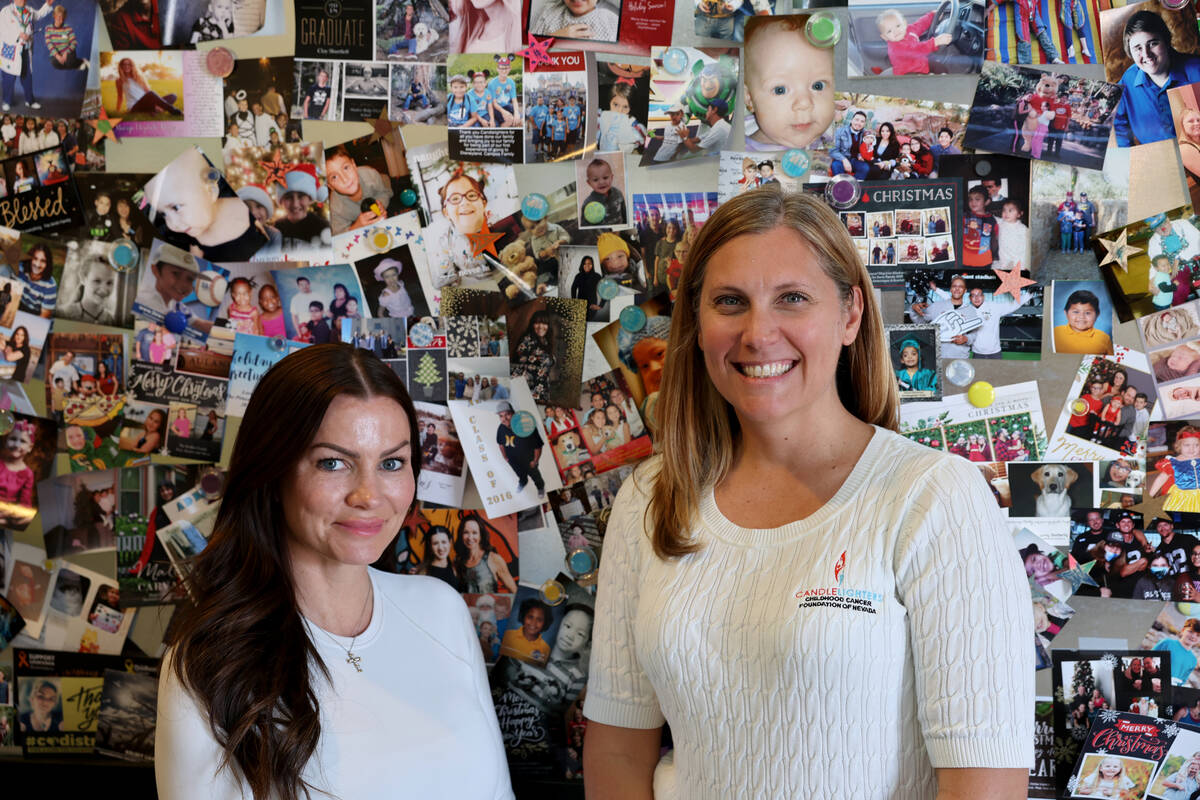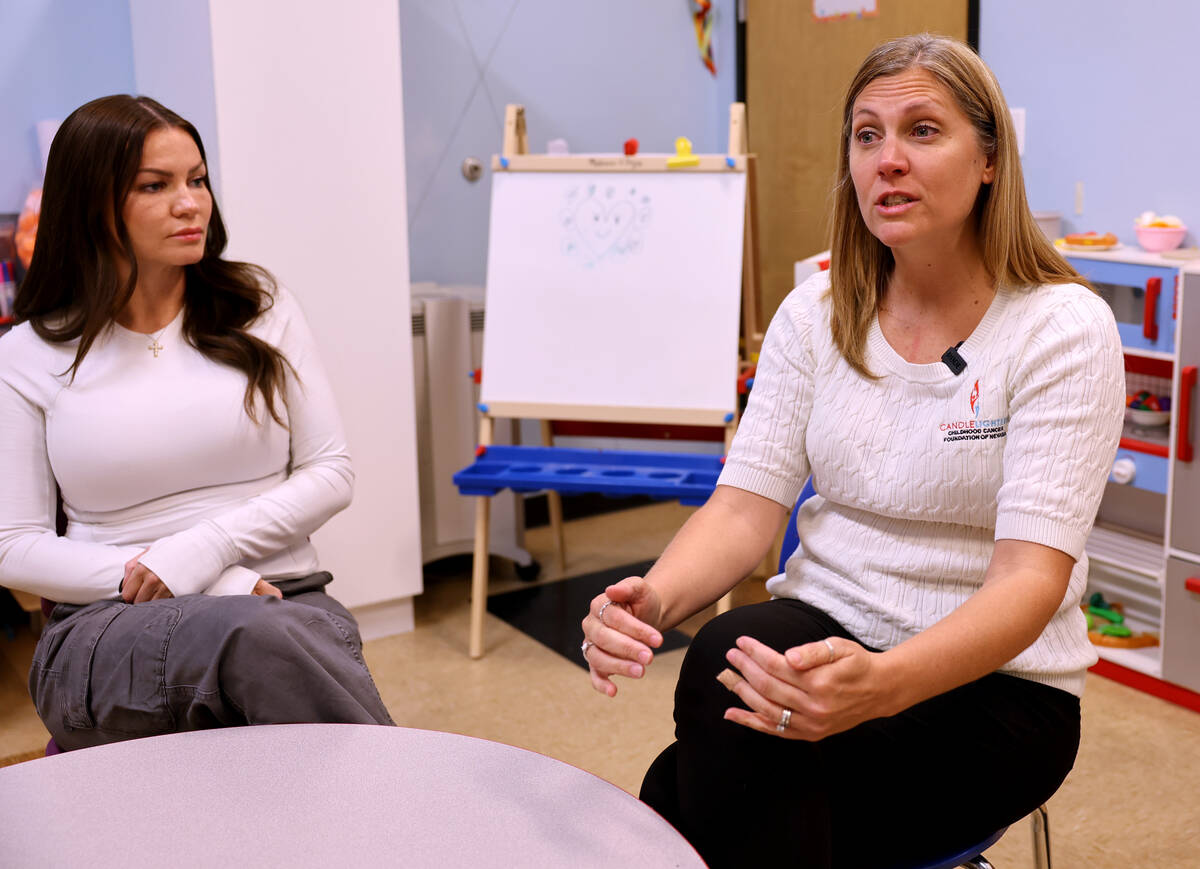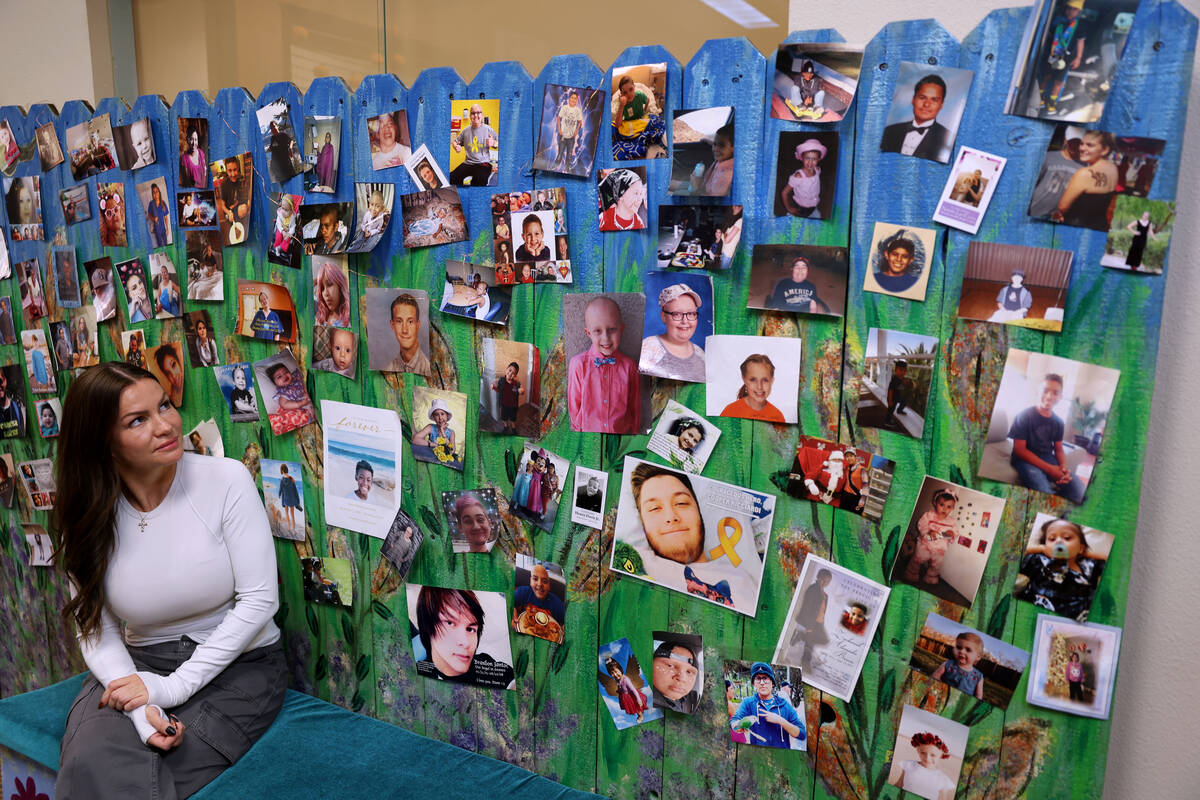‘Grief is real’: This new group supports siblings of cancer victims
When Hillary Cruz was 5 years old, she spent a day in the hospital with a clown called Dr. Magic, she remembered through tears. This was the same day she found out that her 3-year-old sister’s cancer had taken a turn for the worse.
Cruz’s sister, Amy Caroline, died in May of 1990. She had been born with a brain tumor, and her family had relocated from Colorado to Las Vegas to seek treatment.
“We got Amy right into treatment, and here comes Candlelighters,” Cruz said.
The Candlelighters Childhood Cancer Foundation of Nevada is a nonprofit whose mission is to provide emotional support, quality of life programs and financial assistance for children and their families affected by childhood cancer.
Candlelighters introduced Cruz to Dr. Magic, the clown who helped her through that difficult day.
More than 30 years later, Cruz now volunteers for a new Candlelighters program, one designed to support children who, like herself, have lost a sibling to cancer.
The Angel Sibs program, which launched in September, is the first siblings grief support group in Southern Nevada for children and teens affected by the loss of a sibling to childhood cancer, according to the organization.
“This program would have changed the course of my life,” Cruz said. “Childhood trauma is real. Grief is real.”
A ‘needed resource’
This marks the first year that grieving siblings have had access to this kind of support group, but similar groups for bereaved parents who lost a child to cancer have been around for more than 15 years, according to Christina Ramirez, director of family services for Candlelighters.
Parents in these support groups frequently share that they were having a hard time helping their children navigate their grief journey, Ramirez said.
The Angel Sibs program has been a “needed resource in our community,” Ramirez said. “It’s been a long time coming.”
Siblings of a diagnosed child are sometimes referred to as “shadow survivors,” she said. “A lot of times, people really just think about the diagnosed child, but ultimately it really does affect the whole family, including the siblings.”
Candlelighters typically works with three age groups: littles, middles and teens. The Angel Sibs program launched for middles (9 to 13 years old) and teens (14 to 17 years old), but will soon expand to 5 through 8-year-olds. The full program lasts eight sessions, according to Ramirez.
For most of the children and teens in the Angel Sibs program, Candlelighters is a familiar environment. But, it is new for siblings to have the attention turned on them, Ramirez said.
“The first session, everyone was very shy,” Cruz said. But when everyone returned for the second session, she said the awkwardness had faded.
“These kids do see each other around through different events at Candlelighters,” Cruz said. “Now, they’re just getting to interact on a much more personal level.”
It’s not uncommon for siblings to have feelings of guilt, or for parents to have no idea their children feel this way, Ramirez said.
The Angel Sibs program “actually helps them feel seen,” Ramirez said. “It’s their experience and their journey as well.”
‘They get to choose how they grieve’
For some of the children and teens participating in the Angel Sibs program, it’s the first time they’re speaking about their grief, according to Ramirez.
She recalled a conversation she had with the mother of a boy in the program who said her son hadn’t talked about losing his brother in the six months since he’d died.
Her son was encouraged to bring a photo of his brother to add to a memory wall at the Candlelighters office in the southwest Las Vegas Valley. But when he did bring in a photo, he wasn’t quite ready to let it go, Ramirez said.
Instead, he took the picture home and showed it to his parents, crying. His mother told Ramirez that it was the first emotion he had expressed since his brother’s death, Ramirez said.
“A lot of people don’t realize how much the kids actually hold in on their parents behalf. They don’t want to burden their parents,” Ramirez said.
This was a familiar feeling for Cruz, who lost her mom to cirrhosis, she said through tears.
“My mom never came back from losing my sister. I hear about the parent grief groups and the siblings grief groups,” Cruz said. “That wasn’t something that she had been a part of or had found. She literally drank, you know. That’s how she coped, and it killed her.
“Mom and dad had a lot going on, so we hid and did our own thing. We figured it out on our own, and these children today don’t have to,” Cruz said.
As she helps children and teens navigate this same grief, the beautiful part of the program, Cruz said, is that “they get to choose how they grieve.”
And in many cases, this can be through laughter. The Angel Sibs program gives siblings an opportunity to remember their siblings, “and it’s not a sad thing,” Cruz said.
“A lot of it is the simplicity of these children being children,” Cruz said. “It’s letting these kids be kids and letting them know that it’s okay to grieve, and you don’t need to grieve like an adult.”
“Grief can be simple,” Cruz said.
Contact Estelle Atkinson at eatkinson@reviewjournal.com. Follow @estellelilym on X and @estelleatkinsonreports on Instagram.
























